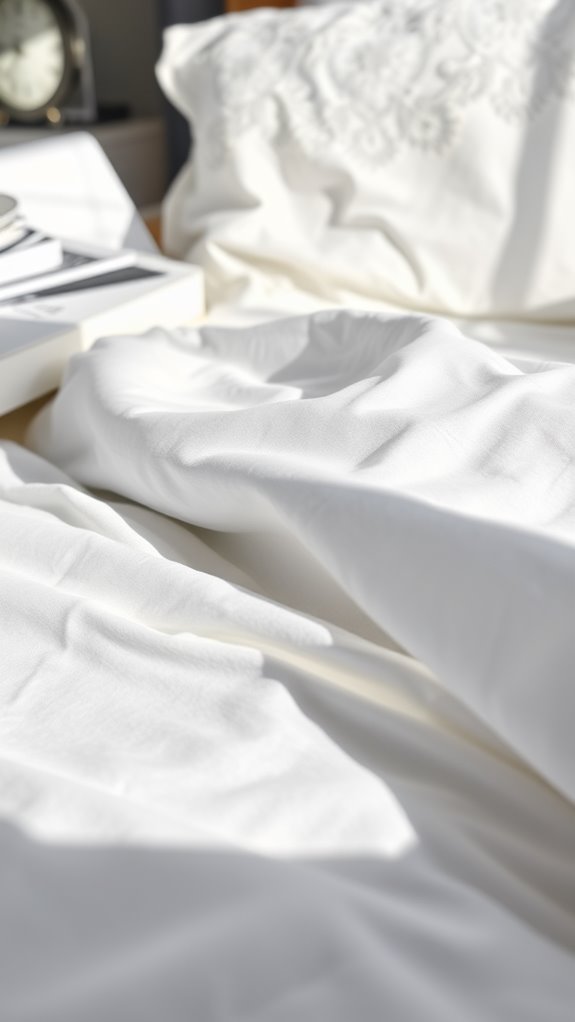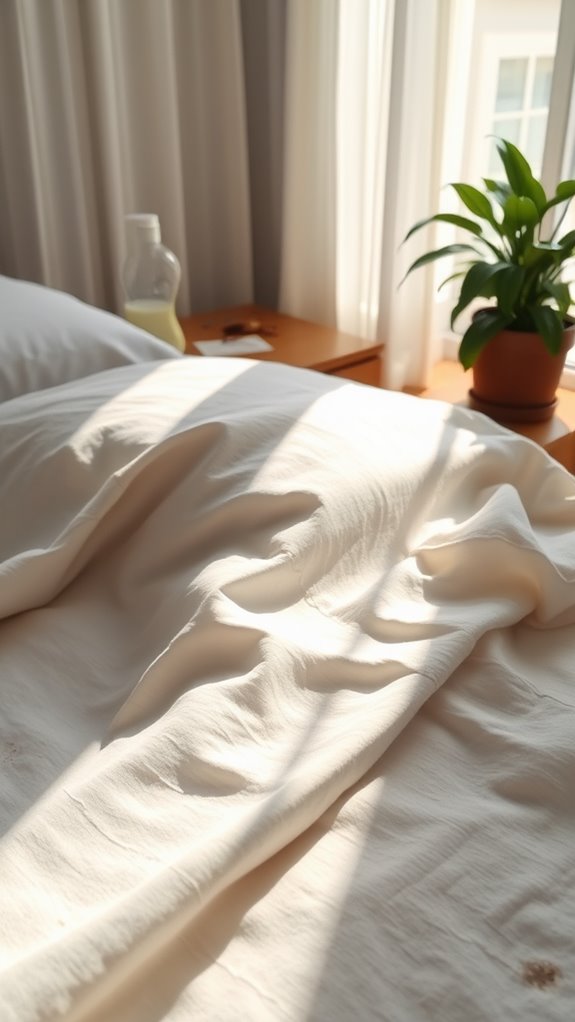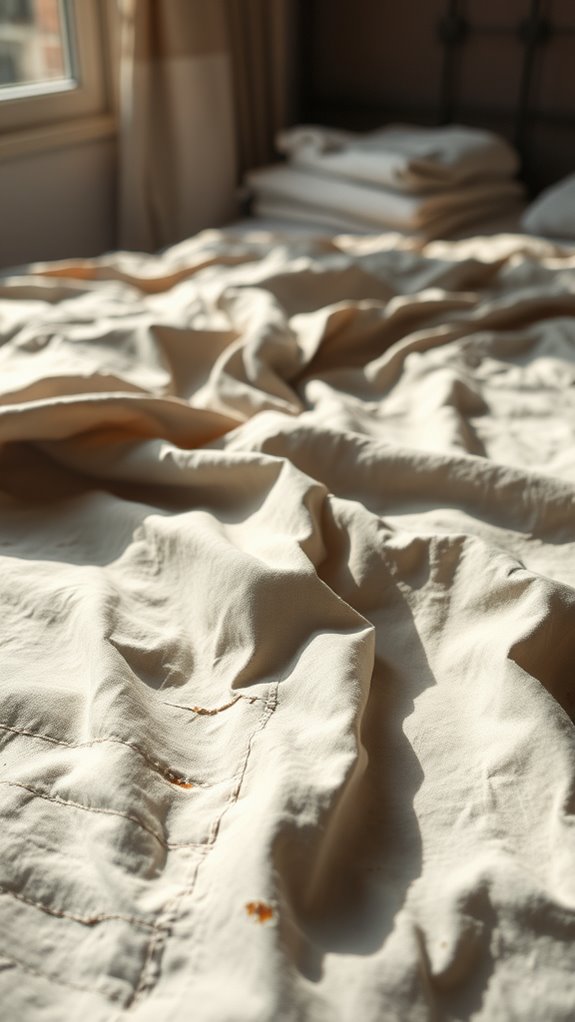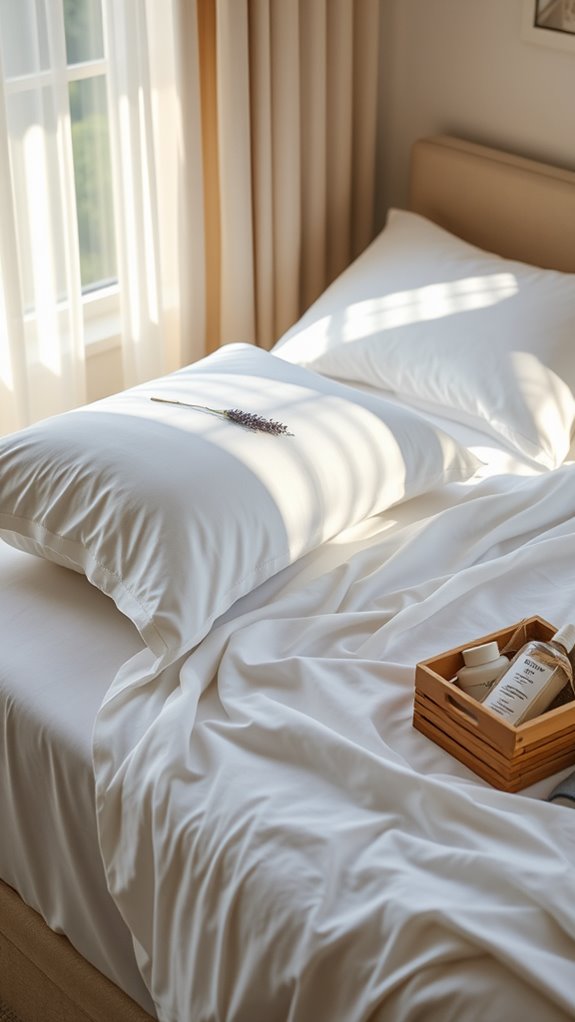How Long Do Sheets Last? Here’s What You Need to Know
Last week, my friend Sarah called me in a panic. “I just spent a fortune on these Egyptian cotton sheets, and they’re already pilling after three washes!” As someone who’s worked in home goods for a decade, I couldn’t help but smile – I get this call at least once a month. After years of helping customers find their perfect bedding and dealing with every sheet disaster imaginable, I’ve become the unofficial “sheet whisperer” among my friends.
Poor Sarah had fallen for the common misconception that expensive always means long-lasting. Over coffee, I explained how fabric quality, care routine, and even sleeping habits affect sheet longevity. By the end of our chat, she was relieved to learn that with the right knowledge, she could make her next set last significantly longer. If you’re wondering about the lifespan of your own sheets, I’ve got some insider tips that might surprise you.
How Long Do Sheets Last?

The lifespan of bed sheets varies by material: high-quality cotton sheets can last 10 to 15 years, while linen typically lasts 3 to 5 years, and silk can last around 10 years with delicate care.
Synthetic sheets like polyester and microfiber generally last 1 to 3 years.
Regular washing and maintenance can extend their life, but signs of wear like fading and pilling indicate it’s time for a replacement.
What Impacts How Long Your Sheets Last?

So, let’s chat about what really impacts how long your sheets last.
It’s not just about the fabric type or how often you wash them—though both are important; I mean, who wants to sleep on a sheet that’s seen better days?
Good washing methods and keeping those body oils in check can make a world of difference, and trust me, your sheets will thank you for it!
Fabric type
The type of fabric plays a crucial role in how long your sheets last.
Cotton sheets typically last 2 to 3 years, while high-quality Egyptian cotton can stretch to 10-15 years.
Linen offers durability of 3 to 5 years, and silk can last up to 10 years with careful handling.
In contrast, microfiber sheets usually last only 1 to 3 years.
Investing in higher-grade materials ensures better longevity.
Weave quality
The weave quality of sheets plays a crucial role in their lifespan.
Percale sheets are crisp and durable, while sateen offers softness but may wear out quicker. Higher thread counts, typically between 200 and 800, enhance durability through denser weaving.
Tighter weaves, like linen, can last over five years, while looser weaves may show wear faster. Proper care according to weave type helps maintain their integrity and longevity.
Body oils and sweat
Body oils and sweat significantly impact the lifespan of your sheets.
These substances break down fabric fibers and can lead to bacteria buildup, odors, and skin irritations.
To maintain hygiene and prolong durability, wash your sheets every one to two weeks, especially if you sweat at night.
Opt for high-quality, breathable fabrics to help wick moisture away and reduce wear over time.
Washing methods
Washing methods significantly impact the lifespan of your sheets.
Aim to wash them every one to two weeks using cool to warm water and mild detergents.
Avoid harsh chemicals and excessive heat, as they can weaken fibers and cause fading.
Washing one set at a time also minimizes wear and tear, helping your sheets last longer.
When to Replace Your Sheets: Key Signs

So, how do you know when it’s time to bid farewell to your trusty sheets?
If they’re starting to look like Swiss cheese with holes or feel scratchy enough to give you a surprise exfoliation, it might be time to shop for new ones.
And let’s be honest, if your sheets have developed a scent that could rival a gym locker, it’s definitely time for an upgrade!
Thinning or tears
Sheets should be replaced when you notice visible thinning or fraying, as this affects comfort.
Small tears indicate the fabric’s integrity is compromised, necessitating immediate replacement.
Excessive pilling can also lead to an uncomfortable sleep experience, signaling it’s time for new sheets.
Regularly inspect for these signs to ensure a comfortable and hygienic sleep environment.
Loss of softness
When your sheets lose their softness and feel rough or scratchy, it’s time to consider a replacement.
Look for signs like fabric pills, thin or sheer areas, persistent odors, and yellowing despite regular washing.
These indicators mean the fabric has degraded, affecting your sleep quality.
Don’t wait too long—invest in new sheets for a better night’s rest!
Stains and odors
Persistent stains and lingering odors are clear signs it’s time to replace your sheets.
Stains that won’t wash out can affect hygiene, while unusual smells suggest bacteria or moisture buildup.
If your sheets are yellowing, have a rough texture, or show visible tears, it’s best to invest in new ones for a fresh and comfortable sleeping environment.
Allergies or irritation
If you notice increased allergy symptoms or skin irritation after sleeping, it might be time to assess your sheets.
Look for signs of wear like rough texture, persistent odors, or yellowing from sweat and oils. These issues can harbor allergens and irritants.
If your sheets feel scratchy or uncomfortable, consider replacing them for better sleep quality and health.
How to Make Your Sheets Last Longer

Alright, let’s talk about keeping those sheets of yours in tip-top shape!
I’ve learned that washing them in cool water and giving them a little TLC can work wonders, plus rotating between sets means they won’t end up looking like they’ve been through a wrestling match.
And trust me, storing them properly is key—your sheets deserve a cozy home, not a plastic prison!
Washing care
To make your sheets last longer, wash them every one to two weeks using mild detergents and cool to warm water.
Avoid bleach to maintain fabric integrity and color. Always follow the manufacturer’s care instructions and use gentle washing cycles.
Rotating between multiple sets can also help reduce wear and tear, keeping your bedding fresh and durable for years to come.
Drying methods
To make your sheets last longer, consider air drying them instead of using a dryer.
If you do use a dryer, choose a low heat setting and remove them while slightly damp to reduce wrinkles and prevent roughness.
Avoid dryer sheets with heavy fragrances, and regularly clean the lint filter to improve airflow and protect your sheets from excess heat.
These simple steps can significantly extend their lifespan.
Sheet rotation
To make your sheets last longer, rotate between at least two to three sets. This gives each set time to rest, reducing wear from frequent washing and use.
Regular rotation also helps prevent allergens and dirt buildup, creating a healthier sleep environment.
Remember to wash and store your sheets properly to keep them in top condition for years to come!
Proper storage
To make your sheets last longer, store them in a dry, dark linen closet to prevent fading and moisture damage.
Neatly fold them to avoid creases and use breathable fabric bags or pillowcases instead of plastic containers.
Rotate your sheet sets to ensure even wear, and regularly check for signs of mildew or deterioration.
Replace any damaged sheets to maintain a healthy sleeping environment.
How to Pick Sheets That Last

When it comes to picking sheets that last, I like to think of it as a little treasure hunt for the perfect snooze buddy.
Start by checking out high-quality materials like long-staple cotton or linen, and don’t forget about that sweet spot in thread count—200 to 800 is where the magic happens!
Finally, keep an eye on the weave types; percale gives you a crisp feel while sateen wraps you in smoothness, both of which are essential for a long-lasting relationship with your sheets. Additionally, consider how breathable fabrics contribute to overall comfort and durability.
Best materials
When choosing sheets that last, opt for high-quality materials. Long-staple cotton, like Egyptian cotton, can endure 10 to 15 years. Linen and bamboo sheets offer 3 to 10 years of durability, while silk can last around 10 years with care. Avoid microfiber and polyester if longevity is your goal, as they typically last only 1 to 3 years. Investing in quality ensures visual harmony in your bedroom decor!
Thread count
When picking sheets that last, focus on thread count between 200 and 800 for the best balance of comfort and durability.
Remember, higher counts (over 600) often don’t provide significant benefits.
The material matters too—high-quality cotton outlasts cheaper options, regardless of thread count.
Don’t forget to consider the weave type, as it also affects how your sheets perform over time.
Weave types
When choosing sheets, consider the weave type for longevity. Percale sheets offer a crisp feel and durability, while sateen sheets provide softness but may wear faster.
Flannel sheets are cozy but can pill over time. Linen is a robust choice that lasts five years or more.
Aim for a thread count between 200 and 800 for optimal durability. Choose wisely for sheets that stand the test of time!
Frequently Asked Questions
How Often Should You Replace Your Sheets?
I recommend replacing your sheets every one to two years. It’s essential for hygiene and comfort. If you notice any fraying or discoloration, don’t hesitate to swap them out sooner for a fresh feel.
What Is the Lifespan of Bed Sheets?
I’ve noticed that the lifespan of bed sheets can vary significantly. Generally, most sheets last one to three years with daily use, but high-quality options can last much longer with proper care and maintenance.
How Long Should 100% Cotton Sheets Last?
I’ve found that 100% cotton sheets typically last around 2 to 3 years with regular use. If I choose high-quality options, they can endure up to 5 years, especially with proper care and washing techniques.
How Do I Know When I Need New Sheets?
I know it’s time for new sheets when I spot fraying, feel roughness, or notice stubborn stains. If they smell odd despite washing or I can’t recall when I bought them, it’s definitely time.
In Conclusion
Sheets typically last between 2-3 years, depending on their quality and care. High-quality cotton sheets can stretch beyond this timeframe with proper maintenance, while synthetic options might need replacement sooner. Regular washing, correct storage, and watching for signs like thinning fabric or loose threads help determine when to replace them.
Keep your sheets in peak condition by following a consistent care routine. Wash them weekly in cool water, avoid harsh detergents, and store them in a cool, dry place. Replace your sheets when you notice persistent wear, discoloration, or damage to maintain optimal comfort and hygiene.
Ready to extend your sheets’ lifespan? Start implementing these care tips today and track your sheets’ condition. Visit our recommended products section for quality sheet options that match your needs and budget.
